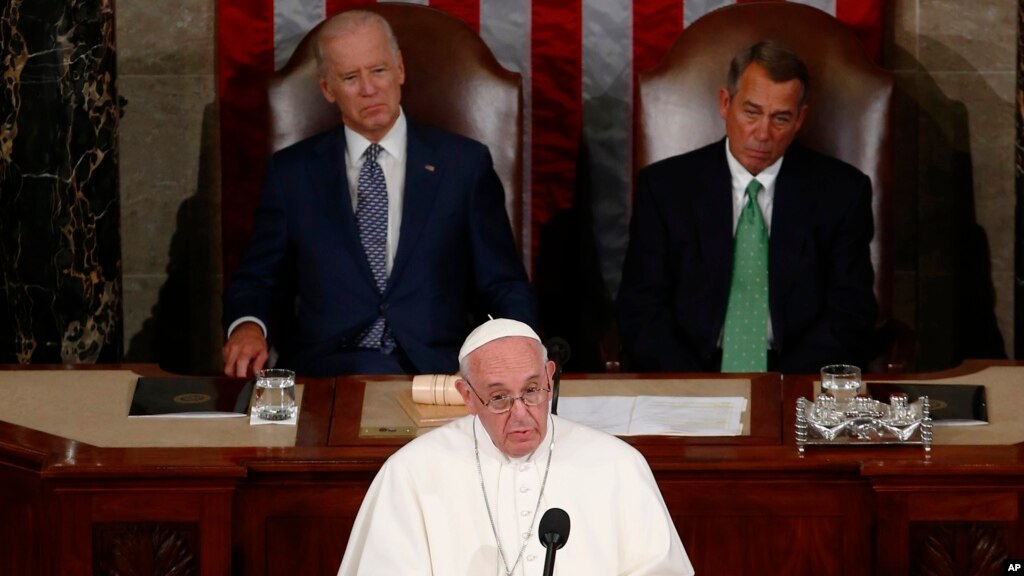
The third-most powerful government politician in the U.S. -- John Boehner from Ohio -- has resigned.
Mr. Boehner, a Republican Party leader, has faced pressure from his party on a number of issues. The Republican Party has disagreed internally the past few years. Power has shifted, and unity has been tested. The party has become more conservative.
Mr. Boehner said he resigned because “ prolonged leadership turmoil would do irreparable damage to the institution” of the U.S. Congress.
“I don’t want the institution hurt. I don’t want my colleagues hurt,” he said.
As Speaker of the U.S. House of Representatives, he ranks in authority after the President and the Vice President.
The Speaker met Friday with conservative opponents, trying to reach a compromise. Lawmakers are trying to avoid a government shutdown of most federal government operations next week, when funding for the year runs out.
The Speaker’s resignation comes one day after the leader of the Roman Catholic Church, Pope Francis, spoke to the U.S. Congress. Mr. Boehner, wearing a green tie, sat behind and to the right of the Pope. Democratic Vice President Joe Biden sat behind and to the left of the Pope.
Mr. Boehner has never been shy about weeping openly in public. During Pope Francis’ address to Congress, he wiped his eyes often.
Mr. Boehner has been in office since 1991, or 13 terms. He ran unopposed twice.
I’m Jonathan Evans.
Kathleen Struck wrote this story for VOA Learning English. Mario Ritter was the editor.
Words in This Story
internal – adj. existing or occurring within an organization (in this case, a party)
prolonged – adj. lasting longer than usual or expected; continuing for a long time
rank – v. to have a particular position in a group of people, organization or goverment





